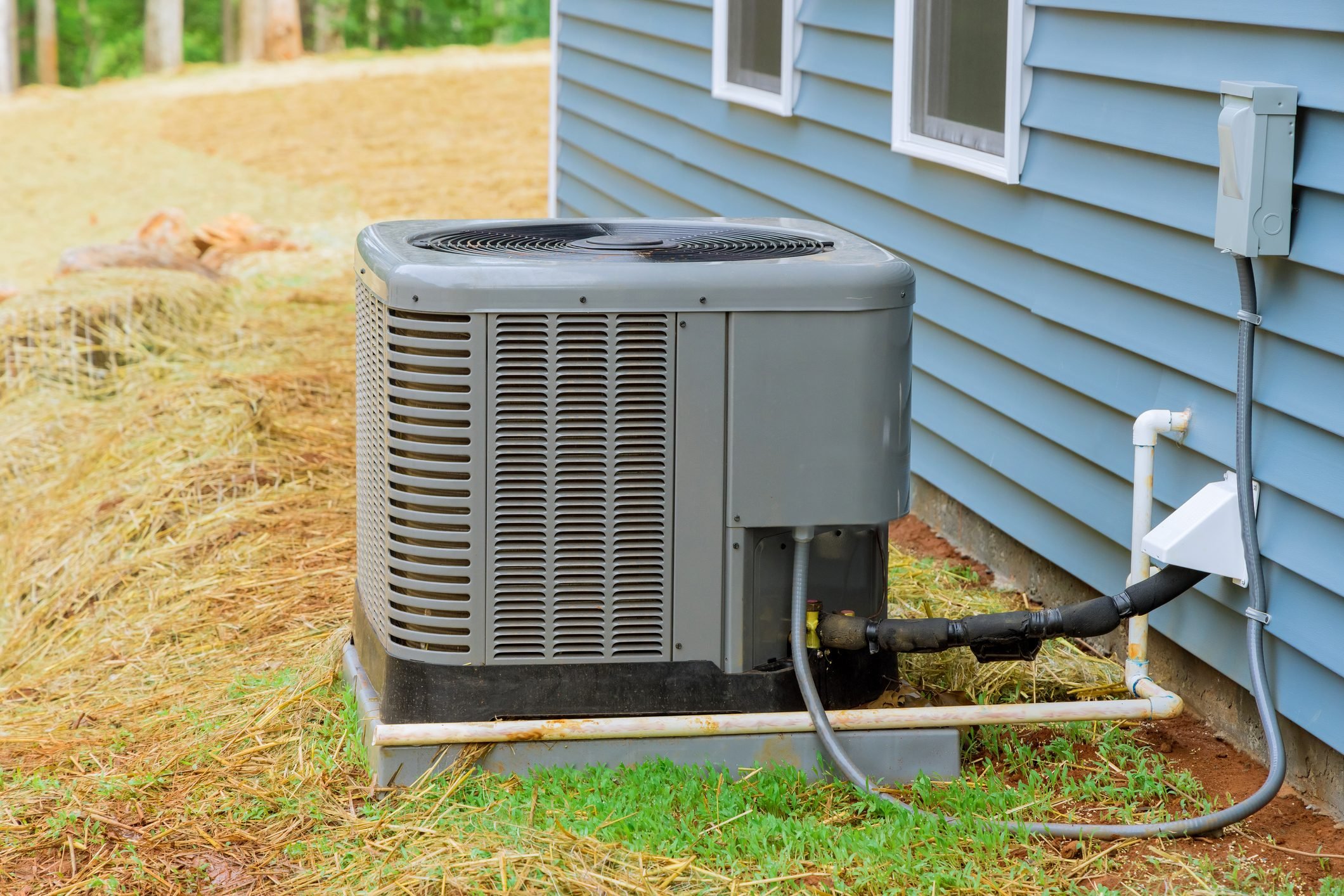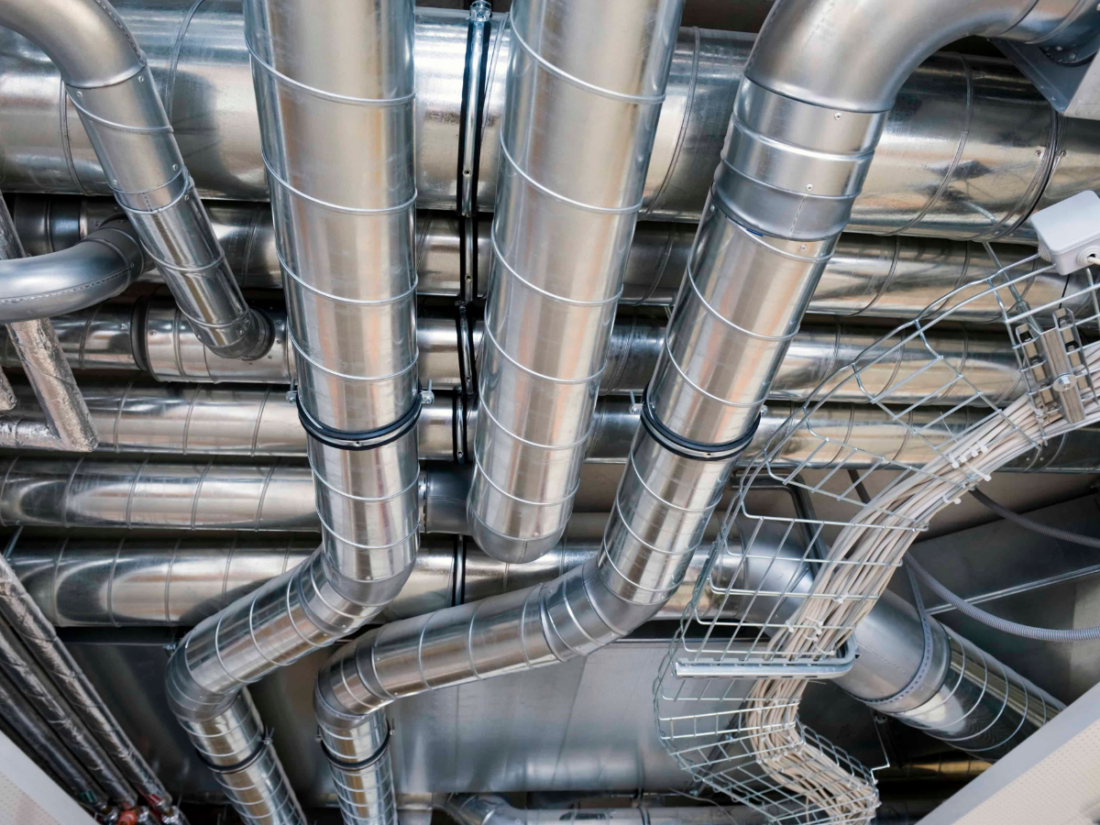Understand how HVAC experts ensure long-lasting HVAC solutions
Wiki Article
Discovering the Essential Elements of an Efficient Heating And Cooling System
A reliable a/c system is constructed on several vital elements that operate in harmony. Each component, from the thermostat to the ductwork, plays a vital duty in keeping convenience and energy effectiveness. Understanding these elements is important for optimizing efficiency and boosting interior air top quality. As one examines these parts, the detailed partnerships in between them reveal understandings into boosting total system performance. What particular factors contribute most to this efficiency?The Function of the Thermostat in HVAC Efficiency

Usually neglected, the thermostat plays an important role in the performance of Heating and cooling systems. This small device acts as the key control facility, managing temperature level setups and guaranteeing perfect convenience within a room. By properly picking up the ambient temperature, the thermostat interacts with the heating, air flow, and air conditioning units to maintain the desired climate
An efficient thermostat reduces power consumption by triggering the heating and cooling system just when required, therefore avoiding too much home heating or cooling. Modern programmable and wise thermostats enhance this performance additionally by permitting users to establish timetables and remotely change setups, adapting to daily routines.
The placement of the thermostat is important; improper place can lead to incorrect temperature level readings, resulting in inefficient operation. In general, a well-functioning thermostat not only boosts convenience but also adds markedly to power cost savings and the long life of the HVAC system.
Understanding the Relevance of Air Filters
Air filters serve a crucial function in heating and cooling systems by guaranteeing that the air flowing within a room continues to be healthy and balanced and clean. These filters trap dust, allergens, and other pollutants, preventing them from being recirculated throughout the environment. By capturing these bits, air filters add to improved interior air high quality, which can considerably benefit occupants' health, particularly those with allergic reactions or breathing problems.Additionally, keeping tidy air filters improves the efficiency of HVAC systems. Clogged up filters can restrict airflow, creating the system to work harder to keep wanted temperature levels, causing raised power consumption and higher utility expenses. Regularly replacing or cleaning up filters is an essential upkeep action that can lengthen the life-span of cooling and heating devices. Inevitably, comprehending the significance of air filters enables homeowners and structure supervisors to take proactive measures to ensure a well-functioning, efficient heating and cooling system that promotes a risk-free and comfortable interior atmosphere.

The Capability of the Heating System and Heatpump
Heaters and heatpump are critical parts of a/c systems, responsible for supplying warmth throughout chillier months. Heaters operate by heating air with combustion or electric resistance, then distributing it throughout the home via air ducts. They typically offer fast heating and can be sustained by natural gas, power, or oil, relying on the system type.Alternatively, heatpump transfer warm instead of produce it. They extract warmth from the outdoors air or ground, also in low temperature levels, and transfer it indoors. HVAC experts. This twin performance allows heatpump to likewise offer air conditioning in warmer months, making them flexible choices for year-round environment control
Both systems require appropriate maintenance to ensure efficiency and durability. While heaters master severe cool, heat pumps can be useful in moderate environments. Comprehending their distinctive performances aids home owners in choosing one of the most ideal option for their heating requires.
Exploring the A/c Unit
The cooling unit is an important part of heating and cooling systems, available in various types to fit various requirements. Understanding the performance ratings of these systems is necessary for making informed choices about power consumption and cost. This section will check out the varied types of air conditioning unit and clear up just how effectiveness rankings influence efficiency.Kinds of Air Conditioners
While numerous aspects influence the choice of a/c systems, understanding the various kinds offered is important for house owners and building managers alike. Central air conditioners are designed to cool down whole homes or buildings, utilizing a network of air ducts for air flow. Window units offer a more localized option, suitable for single rooms or small areas. Mobile air conditioning unit offer versatility, enabling customers to move the device as required. Ductless mini-split systems are an additional alternative, integrating the performance of central systems with the ease of zoning, as they need no ductwork. Geothermal systems harness the earth's temperature for energy-efficient cooling. Each kind includes distinct advantages, making informed selections crucial for effective environment control.
Efficiency Ratings Explained
Recognizing effectiveness ratings is crucial for choosing the ideal air conditioning device, as these metrics give insight right into the system's performance and power consumption. The most typical ranking for ac system is the Seasonal Energy Performance Proportion (SEER), which determines the cooling result throughout a normal cooling period separated by the overall electrical energy input. A higher SEER indicates better performance. Furthermore, the Power Effectiveness Proportion (EER) is used for measuring performance under specific problems. One more vital metric is the Energy Star qualification, which click here symbolizes that an unit fulfills rigorous energy effectiveness guidelines. By assessing these ratings, consumers can make enlightened options that not only optimize comfort yet additionally lower energy expenses and environmental influence.The Importance of Ductwork and Air movement
Reliable ductwork design and airflow monitoring play critical roles in the general performance and performance of HVAC systems. Proper ductwork guarantees that conditioned air is dispersed equally throughout a space, lessening temperature variations and enhancing convenience. Properly designed ducts lessen resistance to air flow, reducing the work on heating and cooling equipment and eventually decreasing power consumption.Airflow administration includes strategically putting vents and signs up to improve the flow of air. This avoids common problems such as warm or chilly areas, which can take place when air flow is blocked or inadequately well balanced. Additionally, the appropriate duct materials and insulation can even more enhance efficiency by reducing warmth loss or gain throughout air transit.
An efficient ductwork system not only contributes to energy financial savings yet can likewise prolong the life expectancy of cooling and heating equipment by decreasing unneeded strain (HVAC experts). As a result, comprehending the significance of ductwork and air flow is crucial for accomplishing peak HVAC system performance
Regular Upkeep Practices to Enhance Performance
Routine upkeep practices are necessary for making sure peak performance of a/c systems. These practices include regular evaluations, cleansing, and needed fixings to maintain the system running efficiently. On a regular basis altering air filters is essential, as stopped up filters can block airflow and minimize efficiency. On top of that, technicians must examine and tidy evaporator and condenser coils to stop overheating and energy wastefulness.Yearly expert evaluations are likewise advised, as qualified technicians can identify potential issues prior to they escalate. Lubing moving parts reduces damage, adding to a much longer lifespan for the system. Making sure that the thermostat functions properly help in keeping perfect temperature control.
Regularly Asked Inquiries
How Usually Should I Change My Thermostat?
Thermostats should commonly be changed every 5 to 10 years, relying on use and modern technology advancements. Regular checks are recommended to ensure peak efficiency, specifically if experiencing irregular temperature level control or increased power prices.What Size Air Filter Is Best for My HVAC System?
The very best size air filter for an a/c system differs by device design. Commonly, it's vital to speak with the owner's guidebook or examine the existing filter measurements to assure peak performance and air top quality.Can I Set Up a Warm Pump Myself?
Setting up a heat pump separately is possible for knowledgeable people, yet it calls for understanding of neighborhood codes and electric systems. Working with a specialist is suggested to ensure proper installment and optimal system performance.Just how Do I Know if My Ductwork Is Efficient?
To identify ductwork efficiency, one need to examine for leaks, step airflow at vents, evaluate insulation high quality, and evaluate temperature distinctions between supply and return ducts. Expert evaluations can provide extensive understandings into general efficiency.What Are Signs My Heating And Cooling Requirements Immediate Maintenance?
Indications that an a/c system needs prompt maintenance include uncommon sounds, inconsistent temperatures, enhanced power expenses, unpleasant smells, and regular biking. Attending to these problems immediately can prevent additional damages and warranty optimal system efficiency.Air filters serve a vital function in Heating and cooling systems by assuring that the air distributing within an area remains clean and healthy and balanced. In addition, preserving clean air filters improves the performance of A/c systems. Ductless mini-split systems are an additional choice, incorporating the effectiveness of main systems with the convenience of zoning, as they call for no ductwork. Comprehending performance ratings is vital for picking the right air conditioning system, as these metrics provide insight right into the system's performance and energy intake. The ideal size air filter for a Cooling and heating system varies by system layout.
Report this wiki page